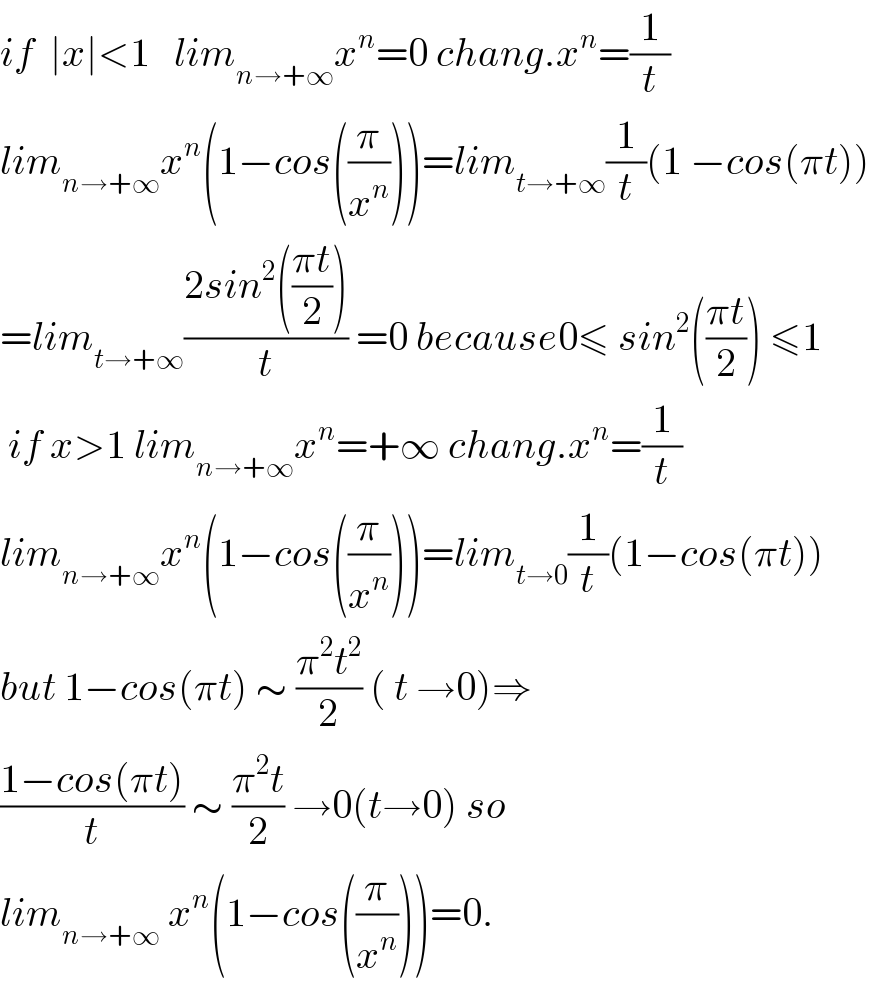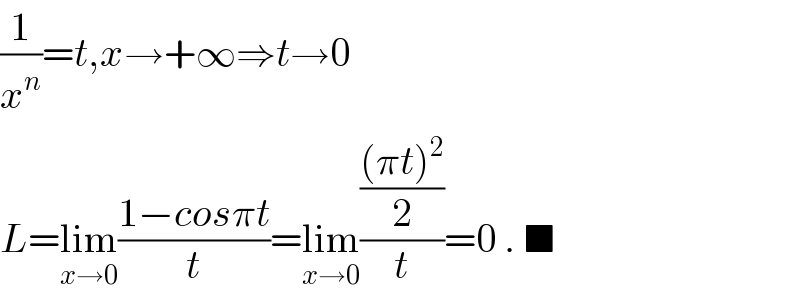
Question and Answers Forum
Previous in Relation and Functions Next in Relation and Functions
Question Number 37817 by prof Abdo imad last updated on 17/Jun/18

Commented by prof Abdo imad last updated on 24/Jun/18

Answered by behi83417@gmail.com last updated on 17/Jun/18

Commented by math khazana by abdo last updated on 18/Jun/18

